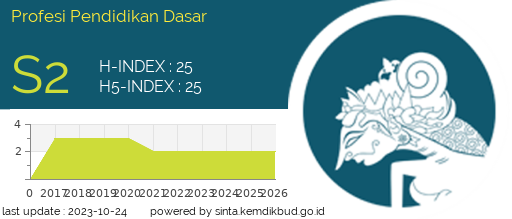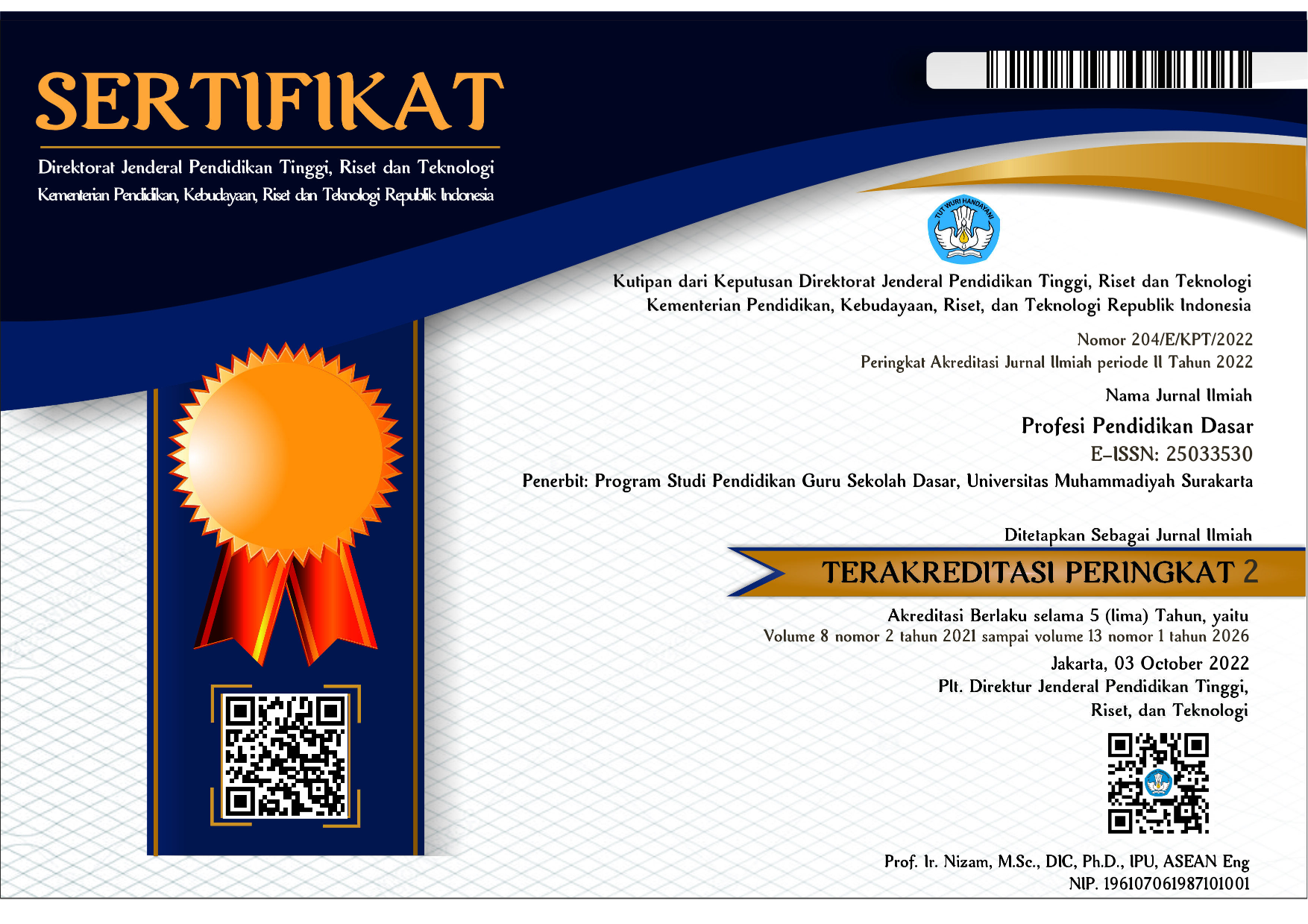Unlocking Math Skills: The Argeo Math App for Enhanced Mathematical Problem-Solving
DOI:
https://doi.org/10.23917/ppd.v10i2.2837Keywords:
argeo math, application, geometry, problem-solving, elementary schoolAbstract
This study aimed to design and evaluate the effectiveness of "Argeo Math," a novel learning media application, in improving mathematical problem-solving abilities in elementary school students. Employing a research and development (R&D) methodology with a limited trial stage, the research examined the feasibility, practicality, and impact of Argeo Math on student performance. Positive validation results affirmed the potential of Argeo Math. Material experts awarded the application a score of 55 (84.6%), while media experts gave it an overall score of 81 (90%). The effectiveness testing demonstrated significant differences between classes using Argeo Math and those using traditional methods. Students utilizing Argeo Math achieved an average score of 78.03%, while those in the control group scored 11.36%. This represents a substantial improvement of 66.67% in problem-solving skills. Additionally, the practicality assessment categorized Argeo Math as "highly practical," with a score of 76.03%. The novelty of this research lies in the development and evaluation of Argeo Math, a unique application specifically designed to enhance elementary students' mathematical problem-solving abilities. The positive findings suggest that Argeo Math holds significant potential as a valuable tool for improving mathematical performance and fostering a deeper understanding of problem-solving strategies in elementary education











